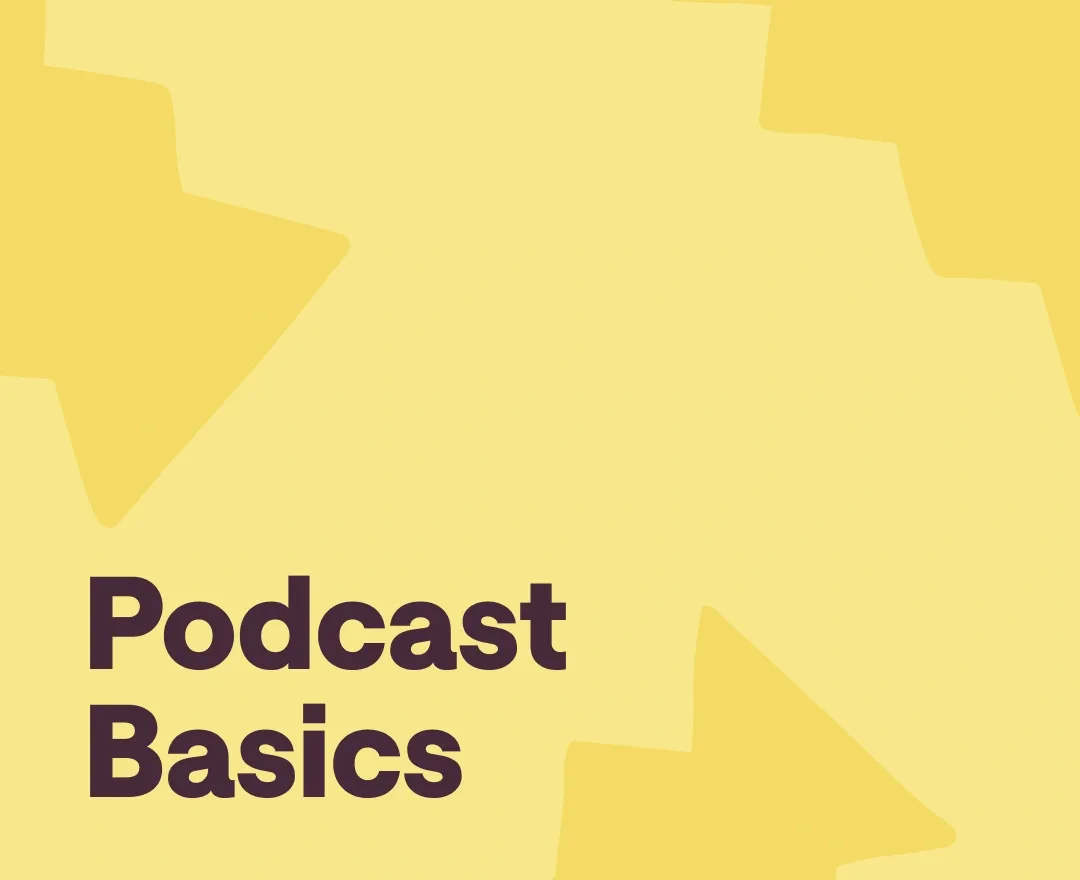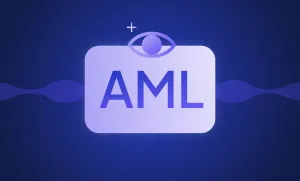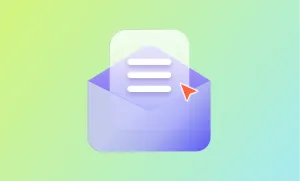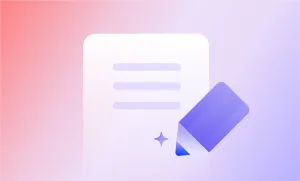Taking the world by storm, podcasting has become an asset for thousands of content creators. As of 2023, there are 464.7 million podcast listeners globally. This number is predicted to grow up to 504.9 million by 2024! But if you still don't have a favorite podcast on your Spotify to wake up to every morning, you might still wonder: what is a podcast? And most importantly, why should you care and maybe even make one? Well, we're here to tell you all about it!
What exactly is a podcast?
What is a podcast? Before we give you a formal podcast definition and examples, let's see how podcast listeners define podcasts!
Here is a rough definition from the "What are podcasts" Reddit thread:
"They’re just like radio shows, but on the internet. Audio-only programs with 1 or more people talking. They can be about anything, from pointless comedy shows to well researched nonfiction to one guy reading stories. You can find them on iTunes, Spotify, Apple podcasts, or their personal websites."
In one of the Facebook Groups, another podcast listener described podcasts as:
"It’s all of your favorite blogs, shows, and topics (some you didn’t even know you’d enjoy!) wrapped up in a huge hub of recordings (Apple Podcasts, etc.) that you can explore, download and listen to on your own time. In the car, at work, at home, working out, anywhere. If you can Google it, there’s probably a Podcast about it!"
Trust us, it is true: if you can Google it, there will probably be a podcast about it!
Both of these answers accurately sum up what a podcast is. But in case you're looking for a dictionary definition, here is the more formal version of it:
A podcast is "a digital audio file made available on the internet for downloading to a computer or mobile device, typically available as a series, new installments of which can be received by subscribers automatically."
Simply put, a podcast is audio/video content around a particular theme or topic. Most shows are in audio format, yet video podcasting is also a thing. You subscribe to them and listen to them wherever and whenever you like!
The popularity of this type of media derives from the busy modern lifestyle. As they are easy to consume, podcasts are perfect for listening on the go, on your daily commute. They also tend to cater to particular niches, so if you are into a TV show or a specific period of history you get content that delivers exactly what you want.
They're a lot like shows on radio stations, with the difference that starting a podcast is something everyone can do. This medium is simply great for independent creators as it allows you to launch your career with a minimal budget. Podcasting goals differ from person to person, so it's just as great of a hobby as it is a source of income. The latter, however, requires a lot more effort and organization, which we'll discuss below.
Podcast formats
When it comes to popular podcast genres, the leading topics range from comedy, society and culture, and education to news and politics, business, and health.
No matter if you pick a niche topic or a more common one, it's entirely up to you to decide how you present it to your potential listeners. Here is where you should get creative and pick a format to attract whoever comes across your show.
The most popular podcast formats are monologue, storytelling, co-host conversation, and interview. There is no "correct format," as it greatly depends on the podcast topic and how you unfold it.
However, keep in mind that both interview and conversational podcasts require additional planning and preparation. When brainstorming podcast topic ideas, consider the format in which your chosen theme will work the best and stick to it.
How to make a podcast
Now that we’ve figured out what a podcast is and how it works, let’s get into the technicalities of how to make one.
Podcast creation platform
Purchasing podcasting equipment isn’t an option for many novice podcast creators. And this is when AI-powered podcast recording software comes into play. Podcastle is one fine example of an audio content creation platform that covers all the stages of podcast production. Plus, it’s free. Let’s see how it can help at each step of podcast creation.
Audio recording
Regardless of a podcast app or software you use, it’s best to record in a small, abundantly furnished room to avoid echo and reverb. Podcastle is available both online and on iOS, so all you need to record your podcast episode is a laptop or an iPhone.
As mentioned above, interview podcasts require extra effort. If you’re just starting out you most likely won’t be able to rent a studio and ensure proper recording conditions for all participants. In this case there’s always the risk of not getting a solid quality recording from your podcast guests.
Podcastle minimizes this risk with its multitrack recording feature. Moreover, your guests won’t have to download any apps; all that you need to do is send an invite link and by the end of podcast sessions you’ll get a separate track for each of your guests. The latter feature is a gamechanger when it’s time to edit.
Editing
Mastering editing requires time and effort. And if you’re planning to be the podcast host, editor and publisher all at once, it’s best to pick a podcast editing software that is maximum multifunctional and intuitive.
Your mobile and web recordings are automatically transferred to Podcastle’s web editor. Our free podcast creation platform allows you to trim and split your audio and make advanced edits such as removing the unnecessary noise with Magic Dust or getting rid of awkward silences in your audio. What is a podcast without a catchy intro and outro? On Podcastle you can access over 7000 royalty-free tunes and sound effects. Make sure your show’s catchphrase and intro are as memorable as your podcast cover art.
Publishing
Having a podcast website is pretty cool and quite necessary at some point (selling merchandise, generating traffic, etc). However, you don’t need to worry about that in the beginning of your journey. Instead you can publish your podcast by submitting it to podcast hosting platforms or podcast directories such as Apple Podcasts, Spotify, Stitcher, and others.
The podcast host is the place where you save your audio files for further distribution. A podcast hosting provider gives you access to large storage space, web players, analytics, scheduling tools, and other useful features. All of these make it easier to publish and track your podcast’s success. Buzzsprout, Captivate and Transistor are some of the best hosting services on the market.
Other than a range of handy tools, hosting platforms also provide you with your podcast RSS feeds, which you later need to submit to the directories of your choice. What is an RSS Feed? With so much new information emerging every second, it’s important to keep your audience updated on your new content. Promoting your audio content via RSS feed is one way to do it. Despite being an old-school technology, Really Simple Syndication provides your listeners with real-time updates on your content. And if we’re being honest, it’s your responsibility to make sure that your show is easy to find. If you’re not planning to use any hosting services, lucky for you, creating a Podcast RSS feed on your own isn’t all that complicated.
First, you’ll need to create an RSS Podcasting account on their official website. After successfully verifying your account, you’ll need to fill in details about your podcast and yourself, the author. Once you submit your RSS feed, your subscribers will get timely updates on your content.
Marketing
Once it’s published, you need to make sure that people find out about your podcast. If you weren’t before, you'll have to get active on social media. Facebook, Instagram, and Discord are important mediums when it comes to promoting your podcast content. Other than maintaining social media pages for your show, this is where your listeners connect and interact. Create podcast trailers to get your audience excited about your next episode. Episode snippets or entertaining posts are also important for attracting new listeners.
You should keep your podcast audience engaged, but keep in mind that the web is also the perfect place to enlarge your network and cook up exciting collaborations. Cross-promotions are beneficial for both sides as other than having fun cooperating, each of you will be exposed to a new group of listeners and increase traffic.
Once your podcast gains a little popularity, you can join a podcast network that will assist you with production and/or content distribution as well as monetizing your podcast. How does a podcast network work? When you join a network, your podcast becomes more accessible to advertisers seeking for the ideal show where they can integrate their campaign.
There are different types of podcast networks, however, all of them have entry requirements — revenue sharing, creative control and mandatory collaborations. Most of the time the benefits overweigh the latter limitations. Depending on your contract you’ll get funding, podcast sponsorships, and many opportunities for personal growth and development. Such networks also provide technical assistance such as free hosting service, your very own podcast producer, a dedicated website and other marketing solutions.
Pro Tip
When we were saying that Podcastle isn’t just a podcast recording platform, we meant it. To rank higher in search results you can use its built-in speech to text software and get a quick transcription of your audio files. Including text with your podcast episodes is an incredibly simple technique to improve your podcast SEO.
How do podcasts make money
Now that you know how to start a podcast, it’s time to think about podcast monetization. There are a number of ways to turn your passion for podcasting into a business — directly and indirectly. In the first case the product that you’re selling is the podcast itself. You can earn income by asking your podcast audience for donations, creating premium episodes that listeners can access only after purchasing.
With indirect monetization, the options are infinite. Many companies and organizations start podcasts to promote their products and services, which means that this business model works quite well. Affiliate marketing is one of the first things that comes to mind when thinking about podcast monetization. Once you gain a relatively large following you can easily find sponsors and advertising opportunities.
Long story short, it all comes down to creating authentic content that will win people’s hearts. With the best podcasting tools at your disposal there’s nothing stopping you from becoming someone’s favorite content creator.








